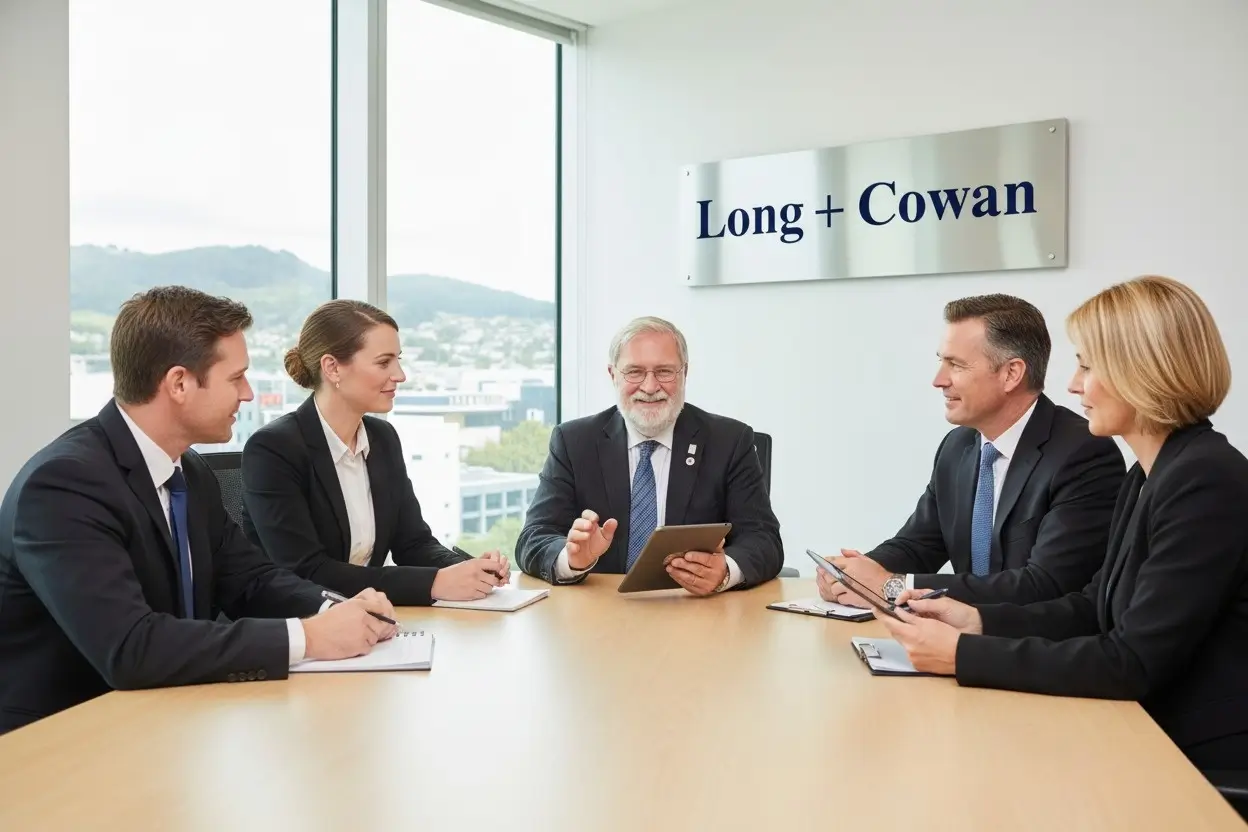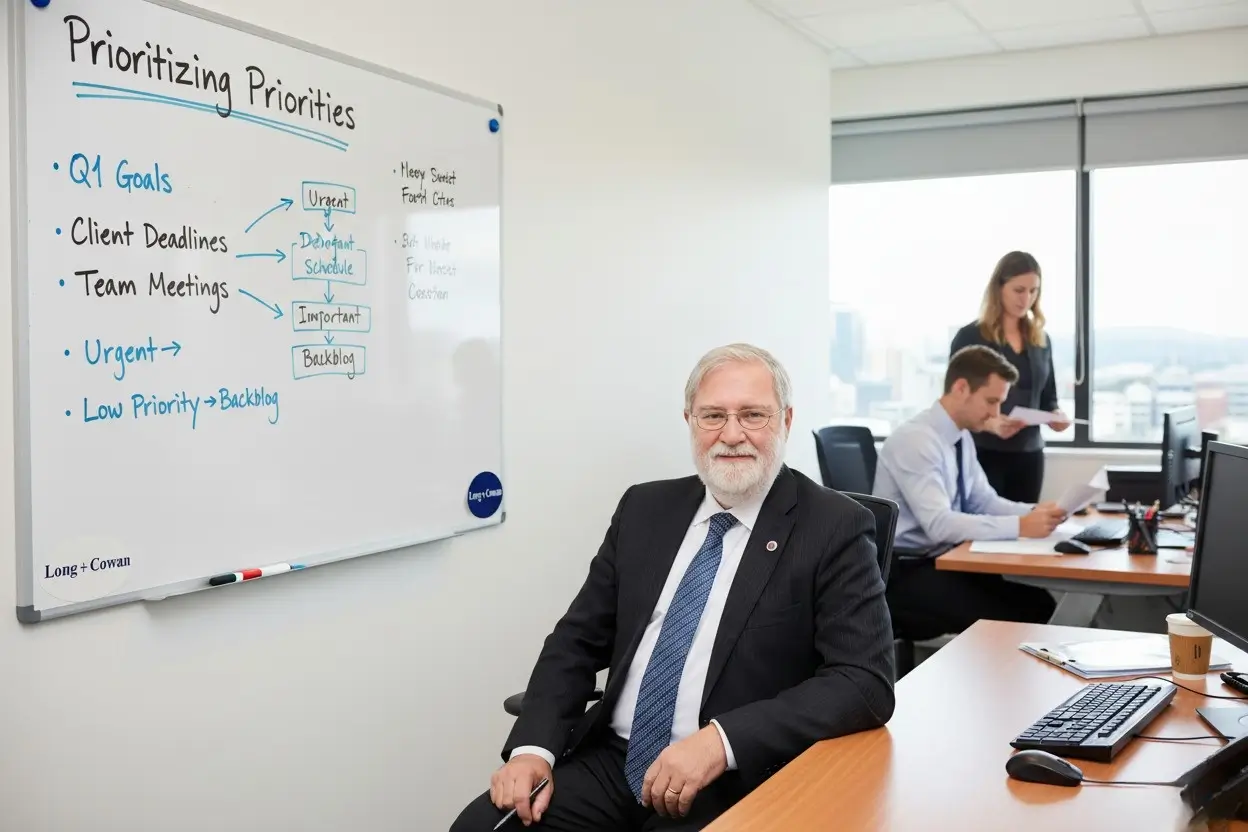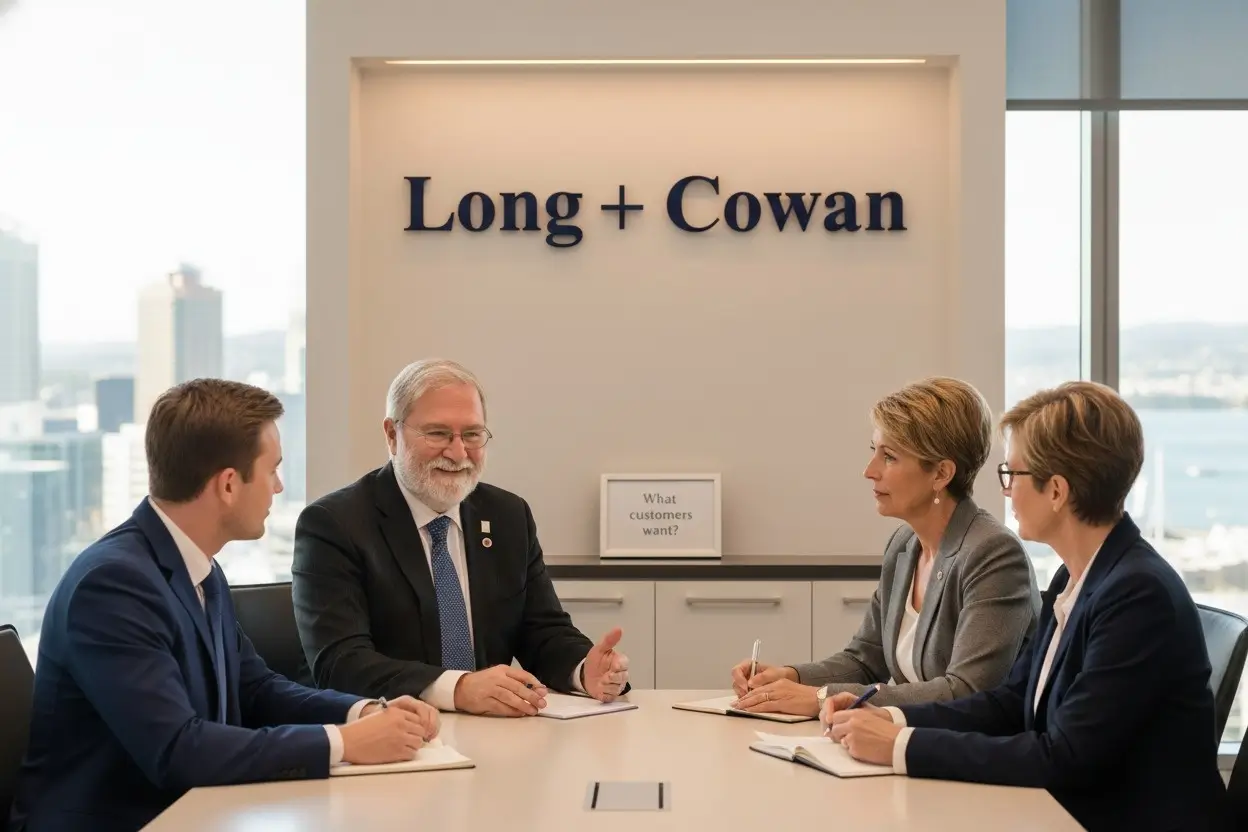Every successful organisation begins with a plan. A strong business strategy provides structure, direction, and accountability. It connects your long-term vision with day-to-day operations, ensuring every action supports a clear purpose.
At Long + Cowan, we see Wellington businesses achieve consistent results when they treat planning as a continual process, not a one-time task. A written plan builds confidence, secures funding, and keeps everyone aligned on the same path.
Why Planning Matters More Than Ever
In an uncertain economic environment, businesses that plan ahead outperform those that rely on instinct. Planning identifies risks, highlights opportunities, and ensures resources are used wisely.
Without a plan, decisions become reactive. Deadlines slip, costs rise, and goals blur. A clear plan gives you the structure to anticipate challenges rather than simply respond to them. Businesses that plan strategically adapt faster and remain resilient in changing conditions.
Defining Purpose and Direction
A strong plan begins with understanding your purpose. Why does your business exist, and where do you want it to go? Clarity of purpose shapes every decision, from staffing to investment.
Define both your short-term and long-term goals. Short-term objectives maintain focus; long-term goals sustain momentum. When direction is clear, teams align naturally and performance improves.
Connecting Vision with Measurable Objectives
Vision must translate into measurable targets. Define objectives for revenue, efficiency, and client satisfaction, supported by clear timelines. Specific goals transform ideas into results.
For example, rather than saying “grow the business,” aim to “increase revenue by fifteen percent over twelve months.” Precise objectives create accountability and make progress visible.
Aligning Financial Planning with Strategy
Financial discipline strengthens strategy. Your business strategy should include accurate forecasting of revenue, costs, and cash flow. These numbers guide decisions and reduce uncertainty.
At Long + Cowan, we help Wellington businesses align strategic goals with financial data using tools like Xero. Regularly comparing forecasts with actual results allows owners to identify trends early and adjust quickly.
Understanding Your Market and Competition
Knowledge of your market ensures your strategy reflects reality. Research your competitors, clients, and industry trends. This insight helps identify where to focus your efforts and how to position your business effectively.
Ask key questions: What do customers value most? What differentiates your services? What gaps exist that your business could fill? Market understanding turns ambition into opportunity.
Allocating Resources Effectively
A good plan ensures every dollar, hour, and skill is used efficiently. Identify your most valuable resources and assign them to high-priority goals. Avoid spreading time and money too thinly across low-impact activities.
Regular review of resource allocation keeps operations lean and productive. Strategic use of capital and manpower ensures sustainable growth rather than short-term gain.
Encouraging Team Engagement
A plan achieves nothing if staff are unaware of it. Share your vision and goals clearly across the organisation. When employees understand how their work contributes to success, engagement rises.
Encourage input from your team during planning discussions. Different perspectives often reveal practical solutions and creative ideas. Involving staff creates ownership and commitment to results.
Preparing for Risks and Challenges
No plan removes risk entirely, but identifying potential threats allows proactive response. Consider economic shifts, technology changes, and supplier reliability. Create contingency measures for each.
Businesses that anticipate problems recover faster and maintain stability. Planning for uncertainty prevents panic and protects operations during disruption.
Reviewing and Measuring Performance
Plans must be reviewed regularly to remain effective. Set quarterly or half-yearly check-ins to measure progress against targets. Use performance indicators such as revenue growth, client retention, and cash flow to track success.
If results fall short, investigate the cause rather than assigning blame. Continuous improvement is central to strategic management. Reviewing performance turns planning into progress.
Maintaining Flexibility
Structure is valuable, but rigidity limits growth. Your plan should evolve as the business environment changes. Flexibility allows adaptation without losing direction.
For example, a Wellington business that planned for expansion may need to adjust timing or budget due to market shifts. Adaptation maintains momentum while protecting financial security.
Communicating with Stakeholders
Clear communication builds confidence with staff, investors, and partners. A written plan demonstrates professionalism and foresight. It shows stakeholders that decisions are data-driven and risk-managed.
Regular updates assure everyone involved that the business is performing well and adjusting appropriately to challenges. Transparency strengthens credibility and long-term relationships.
Using Technology to Support Planning
Technology enhances modern planning. Cloud accounting, project management systems, and performance dashboards allow real-time monitoring and analysis.
Automating reporting saves time and ensures accuracy. At Long + Cowan, we help clients integrate these tools to support smarter financial and operational planning across their organisations.
Applying Planning Principles Across Wellington Businesses
Across Wellington Central, Thorndon, and Te Aro, local businesses succeed by combining vision with structured action. Effective business strategy ensures direction, accountability, and financial control.
Businesses that plan consistently avoid costly surprises and deliver stronger, more predictable growth. Planning provides stability today and opportunity tomorrow.
Partnering for Smarter Planning
Long + Cowan supports Wellington businesses with strategy, forecasting, and financial planning. We help owners design actionable business plans that align resources, budgets, and objectives for sustainable growth.
For expert assistance with creating or refining your business strategy, contact us for more info by filling in an enquiry form or e-mailing or calling us during office hours. A plan gives structure to ambition—let’s help you build one that delivers results.
















































